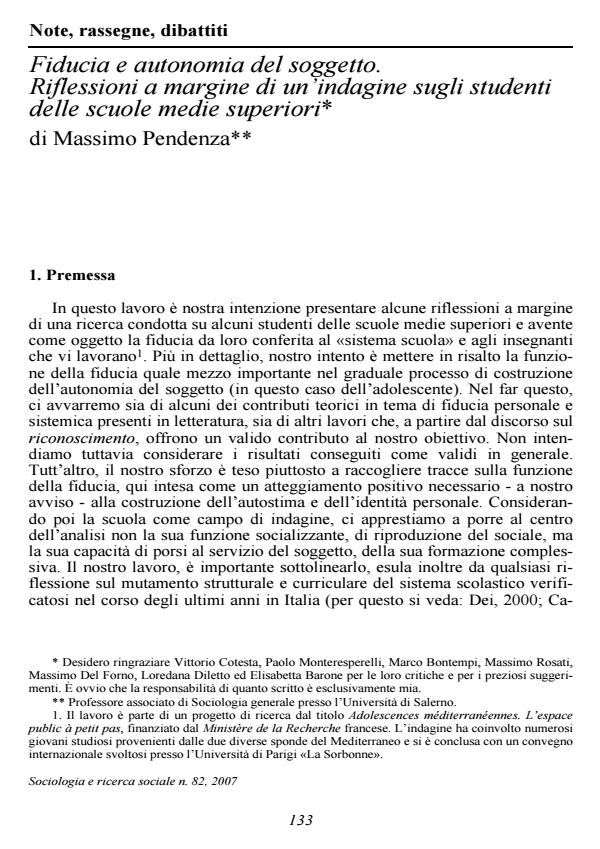Fiducia e autonomia del soggetto. Riflessioni a margine di un'indagine sugli studenti delle scuole medie superiori
Titolo Rivista SOCIOLOGIA E RICERCA SOCIALE
Autori/Curatori Massimo Pendenza
Anno di pubblicazione 2007 Fascicolo 2007/82 Lingua Italiano
Numero pagine 25 P. 133-157 Dimensione file 300 KB
DOI
Il DOI è il codice a barre della proprietà intellettuale: per saperne di più
clicca qui
Qui sotto puoi vedere in anteprima la prima pagina di questo articolo.
Se questo articolo ti interessa, lo puoi acquistare (e scaricare in formato pdf) seguendo le facili indicazioni per acquistare il download credit. Acquista Download Credits per scaricare questo Articolo in formato PDF

FrancoAngeli è membro della Publishers International Linking Association, Inc (PILA)associazione indipendente e non profit per facilitare (attraverso i servizi tecnologici implementati da CrossRef.org) l’accesso degli studiosi ai contenuti digitali nelle pubblicazioni professionali e scientifiche
The article contains considerations on a survey conducted on high-school students, and is aimed at emphasizing the role of trust as a way in which individuals build up their autonomy. Three main topics are taken into account: how much trust students have in their school (reliability) and in their teachers (trusting relationship), the role of teachers as points of access to the school system, and acknowledgement as a form of a successful trustworthy relationship. The thesis sustained argues that trust is a necessary condition to build autonomy in an individual, since it is the means by which others are recognized as capable of deciding and taking action on our behalf. Trust is in fact an irreplaceable means for consenting to the freedom of others, since when the other person is considered trustworthy, we give into the way in which he or she will responsibly use their freedom with us.;
Massimo Pendenza, Fiducia e autonomia del soggetto. Riflessioni a margine di un'indagine sugli studenti delle scuole medie superiori in "SOCIOLOGIA E RICERCA SOCIALE " 82/2007, pp 133-157, DOI: